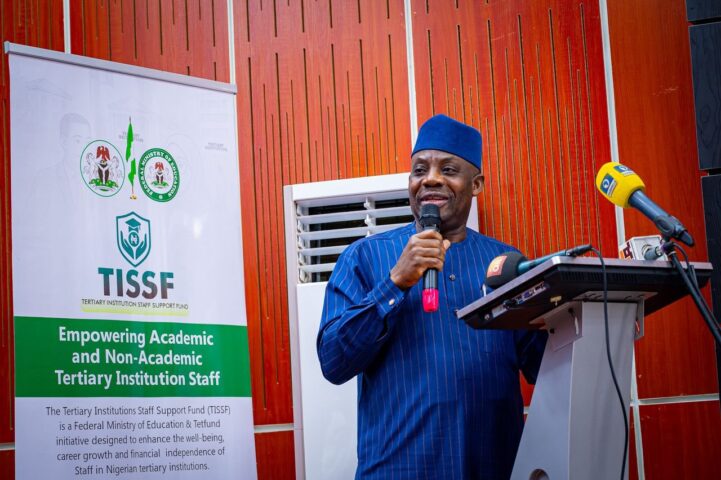ASUU Tackles Tinubu’s Govt., Says Student Loan Schemes Will Keep Beneficiaries In Permanent Debt
The proposed education loan scheme by President Bola Ahmed Tinubu’s administration has been criticized by the Academic Staff Union of Universities (ASUU), which believes it will burden students with permanent debt.
ASUU expressed its surprise at the failed promises made by the incumbent government in addressing the long-standing issues that led to the nationwide strike action from February to October 2022.
Throughout the years, successive Nigerian governments have only paid lip service to the agreements signed with the union, leading ASUU to resort to industrial action to fight for its rights.
Regrettably, key agreements such as the payment of Earned Academic Allowance, the renegotiation of the 2009 ASUU-FGN agreement, removal from the Integrated Personnel Payroll Information System, revitalization funds, and withheld salaries have not been implemented by the government.
ASUU further argues that the Students Loan Scheme, supported by international money lending agencies like the International Monetary Fund and World Bank, will deprive public universities of much-needed funding.
The statement read, “For the avoidance of doubt, the NEC of ASUU reiterated its rejection of the Students Loan Scheme which is being promoted by international money lending agencies such as IMF and World Bank.
“Nigerians should be aware that the scheme is a way of starving public universities of funding and a ploy to divert public funds into private universities owned by politically exposed individuals and their friends.
“NEC further observed that the students’ loan scheme will mortgage the entire university system and keep our promising students in perpetual indebtedness.
“If the scheme could fail in some better-managed economies, there is no guarantee that it will succeed in Nigeria where unbridled corruption, nepotism, and other unsavoury tendencies conspired to kill the Education Bank project after over five years of its existence.”
ASUU, on the other hand, proposed that in order to prioritize the well-being of Nigerian students, grants and scholarships should be provided to them, while the university system should reintroduce the Needs-Based Budgeting System for improved effectiveness.
In a statement issued on Wednesday by the National President of ASUU, Prof. Emmanuel Osodeke, the union strongly criticized the significant increase in school fees and emphasized that the funds redirected from the government’s coffers should be utilized to support universities.
It read, “NEC condemns in its entirety the wave of fee hike without inputs of the victims across our campuses.
“Daily scandalous reports of stupendous funds diverted from government treasuries at state and Federal levels reinforce our belief that resources available to the country could support government-funded university education –without excessive pressures on parents as currently done.”
It explained that had the Federal Government kept fate with the MoU 2013, which provided for N1.3t over a period of six years, many universities would have been restored to a level at which they could attract foreign students and become renowned for cutting-edge and transformative research.
“We challenge the Tinubu administration to urgently initiate moves to conduct another needs assessment exercise to empirically verify our call for massive intervention in our public universities.
“It was the Federal Government’s response to a similar challenge in 2012 that gave rise to the aggregate sum of N1.3 trillion which the Government has since abrogated,” the academic union reiterated.





